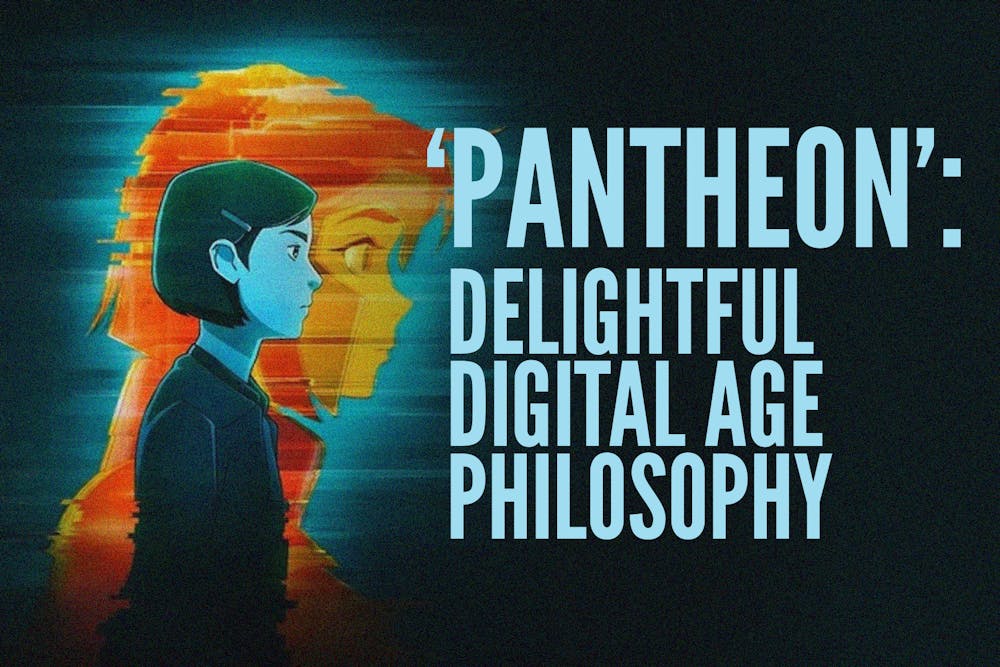I usually keep my eye out for creative animated series, but for some reason, AMC’s “Pantheon” flew under my radar. The series was released in 2022 and added to Netflix in November 2024, but I only watched it in late December last year into early January this year. While I’m frustrated I had not seen it sooner, I’m glad I watched it eventually, because it was one of the most impactful series of the year for me.
A “pantheon” either refers to a group of respected or important people or a group of gods. This is not a word that is ever used in the show, yet it ties together every major storyline within it.
The series’ main storyline focuses on UIs (uploaded intelligence). A tech company finds a way to scan a human brain into computer code, letting someone’s mind live on in a digital space. A laser is used to scan the brain, but it destroys the brain tissue, along with the person’s natural body, as it scans (if the ethics surrounding this were not tricky enough). The main tech company behind this creates a simulation loop to make the UIs live the same work day and run code, check for bugs and do other tasks for the company. They won’t die, won’t need any breaks and can do this indefinitely — or so they think.
The events of the series are set into motion when the UIs escape their digital loop and reach out to their relatives, many of whom have believed them dead. Using VR headsets, their relatives can see and interact with them as if they were there in person, but the question hangs over our heads throughout the whole series: are these programs truly their human predecessors? Or are they machines merely coded to repeat their patterns? I question whether our brains really store all that we are, if it’s something in the composition of our brains that causes us to think and feel the way we do — something physical, tangible.
The other storyline focuses not on nature versus nurture but rather on nature and nurture. The show asks its audience: if we took a man, cloned him and then raised him in an environment replicated after the man’s childhood, would he turn out the same way? How much of our personality is coded into our genes? How much of our destiny is predetermined?
Both these storylines raise questions on the concept of life and replicating it, but none of these questions are answered. The true point of the show is that we are not gods and will never be. The characters who understand this message are the “good guys,” while the “villains” refuse to accept this and are often punished when they can’t control what they thought they could. This can be seen with the tech company that created the UIs to achieve immortality and a UI who believed himself a god due to his command over technology.
I know this show seems like a lot. I first watched it with my younger sister, and we had a lot of fun with it, finding new quotes to add to our expansive reference database. For a series with darker themes, it was surprisingly wholesome, heartfelt and, at times, genuinely funny. The themes of existentialism are present but not delivered in a heavy-handed manner. Season 1 is up on Netflix with Season 2 anticipated to stream there around mid-February. I have no patience, so I will be searching the internet for the previously released second season, but I strongly recommend Season 1 for Netflix viewers in the meantime.










